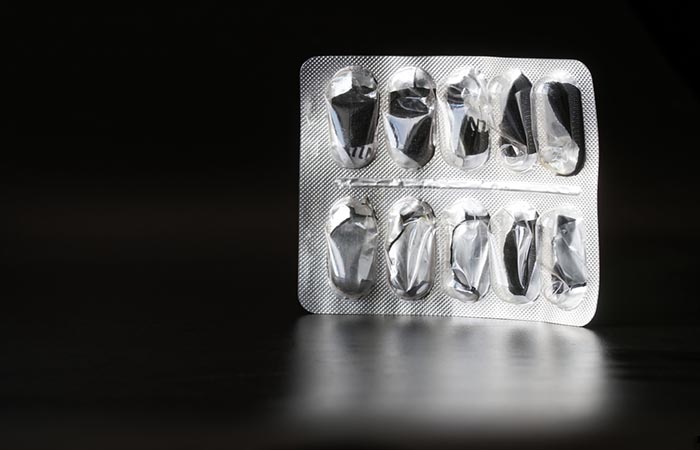Medicines shortages a 'chronic structural challenge' says APPG
In Business news
Follow this topic
Bookmark
Record learning outcomes
Persistent disruptions to medicine supply chains are causing widespread harm to patients, driving operational pressures across the NHS, and placing an unsustainable burden on community pharmacy teams, concludes the All-Party Pharmacy Group in its Inquiry into Medicines Shortages in England, published today (July 8).
The APPG joins a long list of bodies that have investigated medicines shortages, saying that they have become a “permanent and escalating feature” of NHS care. Steve Race MP, APPG chairman, described the situation as a “chronic structural challenge for both the NHS and pharmacy sector”.
“Pharmacy is central to NHS recovery and transformation, but frontline teams cannot safely expand clinical services while daily supply disruptions continue to impact the health of patients,” he said.
“Medicines security must be treated as a core component of NHS planning. Failure to act risks further undermining patient care and destabilising a community pharmacy sector that millions depend upon.”
The APPG makes 12 recommendations to help limit medicines shortages occurring, echoing those made in recent reports by the Company Chemists Association and the Royal Pharmaceutical Society. They include:
- Reviewing and reforming the Community Pharmacy Contractual Framework to deliver a sustainable funding and operating model.
- Implementing a UK-wide medicines shortages communication and patient support strategy
- Establishing a national patient advisory panel on medicines shortages, and developing patient-centred pathways for managing shortages locally
- Strengthening NHS polices to reduce unnecessary prescribing of medicines by brand
- Expanding and further developing the DHSC/NHS Medicines Supply Tool as a single accessible source of information
- Empowering pharmacists to make dose and formulation substitutions during shortages
- Fostering domestic manufacturing capacity and local production of critical medicines and active pharmaceutical ingredients
- Reforming medicines pricing and reimbursement policies to better reflect market realities.
The APPG reports that the DHSC is exploring potential modifications to pharmacist prescription protocols, including increased discretion in medicine substitution. It is also developing communication strategies to improve supply chain transparency to keep healthcare professionals and patients informed on supply issues, while maintaining “system stability”.
Shortages now occur daily for most pharmacy teams, the APPG reports, with shortages a routine feature of daily practice for 84 per cent of pharmacists and 75 per cent of prescribers.
The impact on patients is wide-ranging and felt across several therapeutic areas, it says, with ADHD, diabetes, epilepsy, hormone replacement therapy, and antimicrobials among the hardest hit.
Patient safety and health outcomes are directly affected by treatment interruptions, medicine rationing, anxiety, and adverse events, the report concludes, and the burden on pharmacy teams is intensifying with staff spending multiple hours daily sourcing medicines.
The APPG says the underlying causes of medicines shortages include global supply chain fragility and over-reliance on international API manufacturing. Other reasons include an erosion of domestic manufacturing capacity, and post-Brexit regulatory divergence leading to added cost pressures.
Community Pharmacy England chief executive, Janet Morrison, said that the APPG’s inquiry provides yet more evidence highlighting the medicines supply situation. CPE’s recent medicines supply report found that one in four pharmacy teams is spening more than two hours a day sourcing alternative medicines for their patients.
“The APPG report recommendations echo what we have been saying for years and clearly set out what is needed to achieve real change. This is a longstanding issue that must not become the new norm,” she said.
Duncan Rudkin, the General Pharmaceutical Council's chief executive, said: "We have heard first-hand about the damaging impacts of medicines shortages. We welcome this report and strongly agree the current situation must not be allowed to become the new normal.
“We support the recommendations to help tackle medicines shortages, including empowering pharmacists to make dose and formula substitutions when medicines are unavailable, to support continuity of care for patients and reduce pressures on pharmacy teams and GPs.
“Whilst we do not have a direct role in relation to managing medicines shortages, we are committed to being part of ongoing discussions about what more we can all do to help mitigate the significant impact they are having."
To inform its inquiry, the APPG collected evidence through a survey of 112 pharmacists and pharmacy team members, a separate survey of 51 GPs and prescribers, a written call for evidence that attracted responses from 60 organisations and patients and a parliamentary oral evidence session with key stakeholders.

